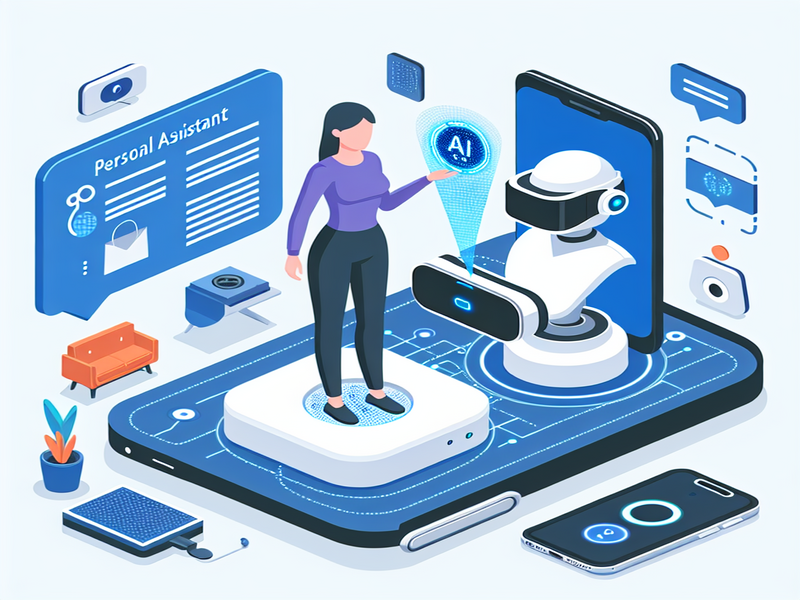- Updated: July 27, 2024
- 3 min read
Meta Quest 3: The First VR Headset with an AI Personal Assistant
Meta Quest 3: Unleashing the Power of AI Personal Assistants in Virtual Reality
The world of virtual reality (VR) is about to take a giant leap forward with the highly anticipated release of the Meta Quest 3. This cutting-edge VR headset promises to revolutionize the way we interact with digital environments by seamlessly integrating an AI personal assistant, marking a significant milestone in the convergence of artificial intelligence and immersive technology.
Introducing the AI Personal Assistant
At the heart of the Meta Quest 3 lies a powerful AI personal assistant, a groundbreaking feature that sets this VR headset apart from its predecessors. This intelligent companion will be your constant guide, providing real-time information, answering queries, and offering personalized assistance throughout your virtual experiences.
Imagine being able to ask questions, seek clarification, or request specific information simply by using voice prompts while immersed in a virtual world. The AI assistant will leverage its vast knowledge base and advanced natural language processing capabilities to comprehend your queries and provide accurate and contextual responses, seamlessly blending into the virtual environment.
“More than a decade ago, we recognized AI and the metaverse as two foundational technologies for the next computing platform, and we’ve been investing in fundamental research into both ever since… Large language models are enabling powerful virtual assistants that become even more useful when embedded within wearable devices like Ray-Ban Meta smart glasses and, soon, Quest.” – Meta
Seamless Integration with Meta’s Ecosystem
The AI personal assistant on the Meta Quest 3 is not an isolated feature; it is part of a broader strategy to integrate artificial intelligence across Meta’s product lineup. This integration will allow users to enjoy a consistent and cohesive experience, whether they are using Instagram, Facebook, WhatsApp, or the company’s Ray-Ban Meta Smart Glasses.
By leveraging the same AI technology powering these platforms, the Meta Quest 3 will offer a familiar and intuitive experience, enabling users to seamlessly transition between different Meta products while benefiting from the same intelligent assistant.
Unlocking a World of Possibilities
The inclusion of an AI personal assistant in the Meta Quest 3 opens up a realm of possibilities for enhanced virtual experiences. Imagine being able to access real-time information about the virtual environment you’re exploring, receive guidance on how to interact with objects or complete tasks, or even engage in meaningful conversations with virtual characters powered by the AI assistant.
This integration has the potential to revolutionize various industries, from gaming and entertainment to education and training. Virtual classrooms could become more engaging and interactive, with the AI assistant acting as a knowledgeable tutor, providing explanations and answering students’ questions in real-time. Similarly, virtual training simulations could benefit from the AI assistant’s ability to provide context-specific guidance and feedback, enhancing the learning experience.

Conclusion: Embracing the Future of AI-Powered Virtual Experiences
The integration of an AI personal assistant in the Meta Quest 3 represents a significant milestone in the evolution of virtual reality technology. By combining the immersive power of VR with the intelligence and versatility of artificial intelligence, Meta is paving the way for a future where virtual experiences become more intuitive, engaging, and personalized.
As the Meta Quest 3 prepares to launch in the US and Canada this summer, with a global rollout to follow, users can look forward to a new era of AI-powered virtual reality, where the boundaries between the digital and physical worlds blur, and the possibilities are limited only by our imagination.
